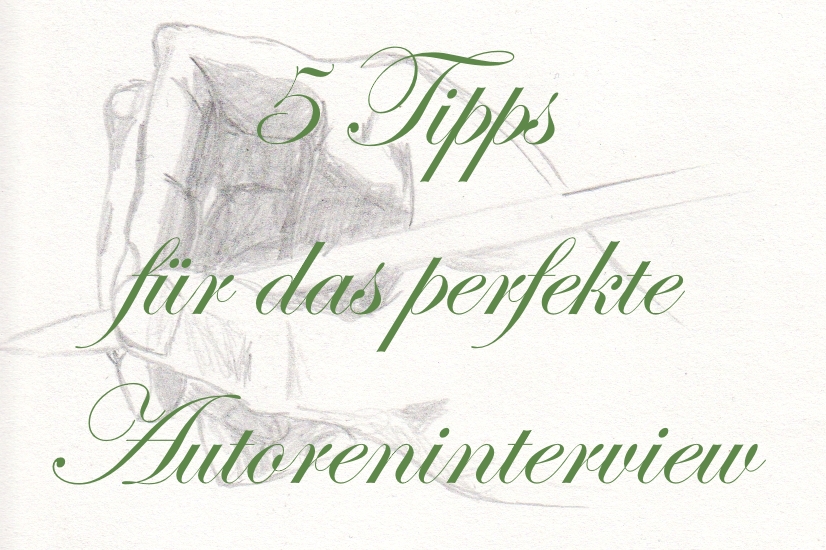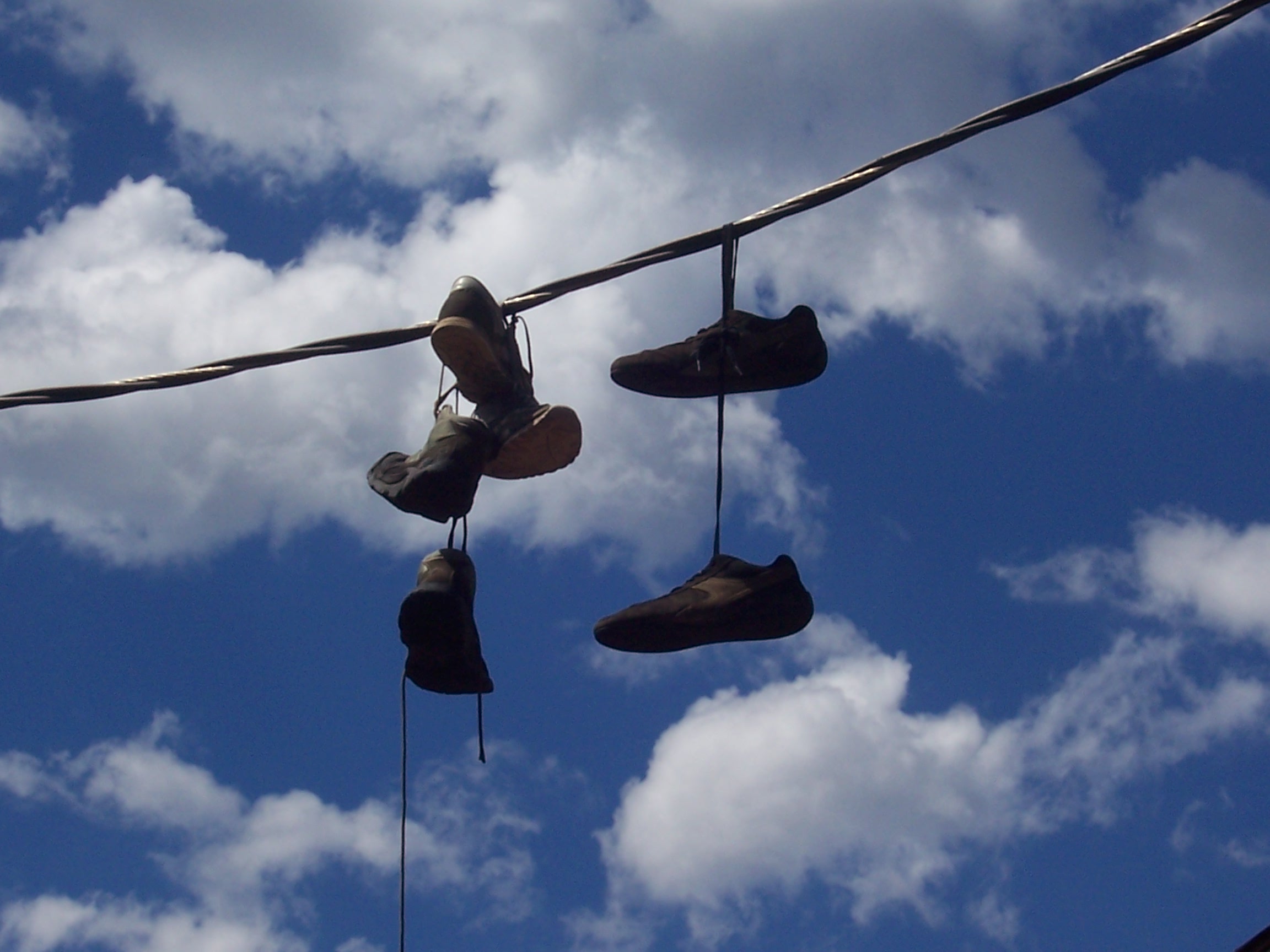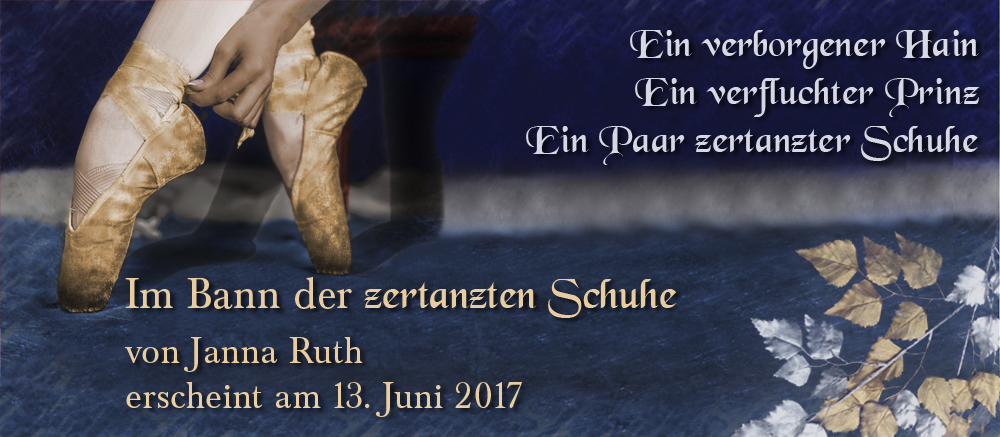
5 Tips for the perfect author‘s interview
How to engage authors and readers
„When did you start writing stories?” Since celebrating my debut novel at the beginning of the year, I have given quite a number of interviews. There have been so many of them that some of the questions have become quite repetitive and I’ve been thinking about text blocks to make answering them easier. Like for many writers, the short answer to that question is “I’ve been writing stories since I was a little child”. No one really wants to read this, especially if that answer has already basically been given by the fifteen authors who have been interviewed before.
And this is how this article came about. When you do an interview, you want people to read it and not just create a pastime for blogger and author. From time to time, you get the really good ones: the interviews that really challenge you, because the questions are so unique and you get the feeling that there is someone on the other side really wanting to get to know you instead of just providing a platform for you to present yourself on. Which, of course, is also a great thing but doesn’t actually get you as far as you would like to get.
With these five tips, I want to show you how to ask interesting and exciting questions instead.
1. Take out the standard questions with the trash
Of course, it is easy to prepare a catalogue of questions that you can just send out when needed. But those standard questions are boring, truly boring. Instead of digging for some interesting facts or revealing something surprising, you are leaving all the hard work to the author. It is in their own interest to try and make up some new take on the same old question, just so, their readers will still be entertained and also so that they won’t fall asleep while answering your catalogue.
Examples of this are the feared “When did you start writing?”, “Where do you get your ideas from?” Or “where are you writing?”. Of course, there’s some authors who accidentally have a really interesting answer to those questions. Maybe they only started to write, when they came across a cliche in their favourite genre for the 10th time. Or maybe they’re only writing on the shores of a beautiful lake in moonlight. But most of the time, the following is true: you get standard answers for standard questions.
However, it only takes a little effort to elaborate these standard questions.
Cheat: You could always ask standard questions at the beginning or in the middle of the interview and go from there. Potentially, the author has a very special answer to give and if not, you could always scrap that question in the final draft.
2. Research is everything
Yes, I know, no one has any time. But just as bloggers want to be personally addressed by authors, an author wants to be asked personal questions by a blogger. So before interviewing an author, try to find out as much as you can about the author – we all have a biography floating around somewhere – and read their book or at the very least, find a summary.
Not only does that knowledge help you transform those standard questions into specific questions like “how did you get the idea to introduce this or that plot element?”, your mind will probably be flooded by questions as it never has been before. For example, I was asked how my take was on environment protection because the conflict between nature and civilisation plays a vital role in “Dance of the Fireblossoms”. That is a question I could answer in great detail and one that I will very unlikely be asked concerning my other book “Under the Spell of the worn-out Dancing Shoes”.
It not only makes the author happy that someone actually read their book in such an observant manner, the reader also learns a lot more about the author and his book, which is what this interview is all about.
Cheat: If you don’t know what to ask an author, ask them to send you a few topics that they would like to talk about. There might be something that they always wanted to elaborate on but have never been asked to.
3. Having a chat instead of answering a questionnaire
A really good interview is one that follows up on the answers. That’s why interviews in newspapers and magazines are always done in person or at least over the phone. To get to the really interesting details that will make this interview different from all the ones before and after, there is no one true question. But there is always one true follow-up.
In order to keep the length of the answer down and to stick to the topic, the author only alludes to most aspects of more complex topics. It’s your task to pick up on that, because following up on those answers might quite likely lead you to the golden egg of this interview. So, ask again, draw connections, and make up your own theories, challenging the author into new ways of thinking about their book and the message they want to send. Another advantage to this, is the fact that the interview becomes much more readable, pretty much as a good dialogue is a lot more readable than some filled-out questionnaire.
Since authors and bloggers usually don’t have the time to sit down for coffee and some may suffer from telephone phobia as I do, you could always interview someone over chat. It’s not as good as the original, because the author has time to revise their answer for numerous times before hitting the send button instead of answering spontaneous, but, over all, this is the best alternative.
Cheat: One method that works quite well, is using a personal questionnaire (check research), which will be passed back and forth a couple of times to amend questions, insert new ones, and follow-up on the answers.
4. Have fun!
I don‘t think you can say that often enough. If you follow the tips above, you will probably already have a lot more fun interviewing than you had before, when you were only formatting the questions and answers for your website. But, of course, there is more you can do to change things up a little. For example, you could ask unusual questions that will take the author out of his comfort zone like “With what colour would you describe your books?”
Flash interviews can also mix things up with their quick-shot this-or-that questions. I do have to say, though, that those kind of interviews tend to not really reveal much about the author or the book. Or have you ever held on to the fact that the author prefers daisies to roses before?
Creative approaches are always good and can lead to very interesting interviews. For example, Elea Brandt invites other story’s characters to her virtual couch and interviews them in depth about their mental issues. This, of course, teases the book quite a bit and it also offers the author an opportunity to thoroughly think about their character in another context. Or maybe you take up the role of the main character and ask the author, what the hell they were thinking. As you can see, the possibilities are endless.
Cheat: Check other people’s interviews that you found funny or cool and use those for inspiration.
5. Check out your colleagues’s work
Authors are often counselled to read a lot, especially in their own genre, to find out what works, what actually exists, and how to find their own niche. In my opinion, you can easily adapt that advice for interviews. So, my last tip for you is to read interviews of other bloggers and authors and think about why you liked a specific interview, why you enjoyed reading it, or also why you gave others a pass.
And to spice things up a little, here is a number of example interviews that I liked a lot. The first one would be an interview with Kendara Blake on Darkstar’s Fantasy News blog where you right away that the interviewer knows the book, has informed himself about the author and stroke up a connection with her. http://www.fantasy-news.com/2017/07/15/interview-mit-kendare-blake/
In a similar way, Mona Seiffert interviews Alana Falk amongst others. Though, she does start with the standard question to warm up, Mona quickly diverts to more interesting questions that show how well she knows book and author. One more thing she does, is to give each interview a thematic focus by picking out something special about the author, like in this case pseudonyms. http://www.mona-seiffert.net/2017/08/kollegen-alana-falk/
As mentioned above, Elea Brandt doesn‘t interview authors but characters such as Azzael from “Höllisches Intermezzo“ by Bo Leander. With this approach, she gets a lot closer to the characters than by just reviewing the book and, sometimes, even draws out a secret. What is even more exciting, is the fact that due to her education she always provides a psychological context. So you’re not only immensely entertained but also learn something new. https://eleabrandt.com/2017/06/19/charaktere-auf-der-couch-2-azzael/
At last, there is an interview with me by Leserkanone.de, which I want to show here, because it really surprised me. I had been the one asking to be interviewed rather than the other way around and so I was very surprised, when I got the questions. They plainly showed that the interviewer researched my website and my books in great detail beforehand. I was asked about things no one ever took into account and connections were drawn that really got me thinking about my answers. https://www.leserkanone.de/index.php?befehl=autoren&autor=7388&interview=477
Cheat: Try asking around in groups or asking your followers about interviews they liked.
I hope you enjoyed those tips and tricks and were able to take something home to create exciting and interesting author interviews. Now, I would like to know which interview formats you love to read and which specific interviews have truly excited you. Feel free to post your links in the comments.
Yours, Janna
Disclaimer: This blog post reflects on my personal experiences and my thoughts about the interviews that I have given so far, as well as advice I was given at a citizen journalism seminar with the Futurium last November.




One Comment
Pingback: